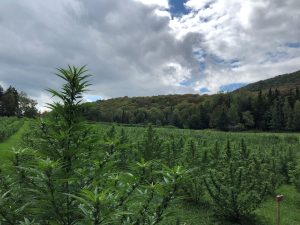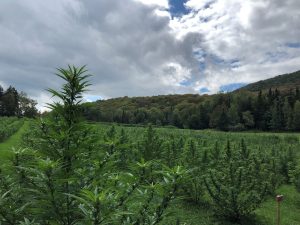
The U.S. Department of Agriculture has established the U.S. Domestic Hemp Program, to create a nationwide regulatory framework for hemp production, as required by the 2018 Farm Bill.
The proposal includes provisions for the USDA to approve hemp production plans developed by states and American Indian tribes including:
- Requirements for maintaining information on the land where hemp is produced.
- Testing the levels of delta-9 tetrahydrocannabinol (THC).
- Disposing of plants not meeting necessary requirements.
- Licensing requirements.
- The federal interim final rule will also establish a plan for hemp producers in states or territories that do not already have an approved hemp production plan.
U.S. Secretary of Agriculture Sonny Perdue announced the interim rule in a press statement on Tuesday.
“We hope the ability to grow hemp will pave the way for new products and markets,” Perdue said in the statement.
“We have had teams operating with all hands on deck to develop a regulatory framework that meets congressional intent while seeking to provide a fair, consistent and science-based process for states, tribes and individual producers who want to participate in this program.”
Guidelines for sampling and testing procedures will be issued concurrently, providing more information for sampling agents and hemp testing laboratories.
Once published in the Federal Register later this week, the rules will immediately become effective. But the USDA will invite public comment on the interim final rule.
After the USDA approves state and tribal production plans, hemp producers will be eligible for USDA programs including crop insurance coverage.
This story will be updated throughout the day.
Laura Drotleff can be reached at [email protected]


